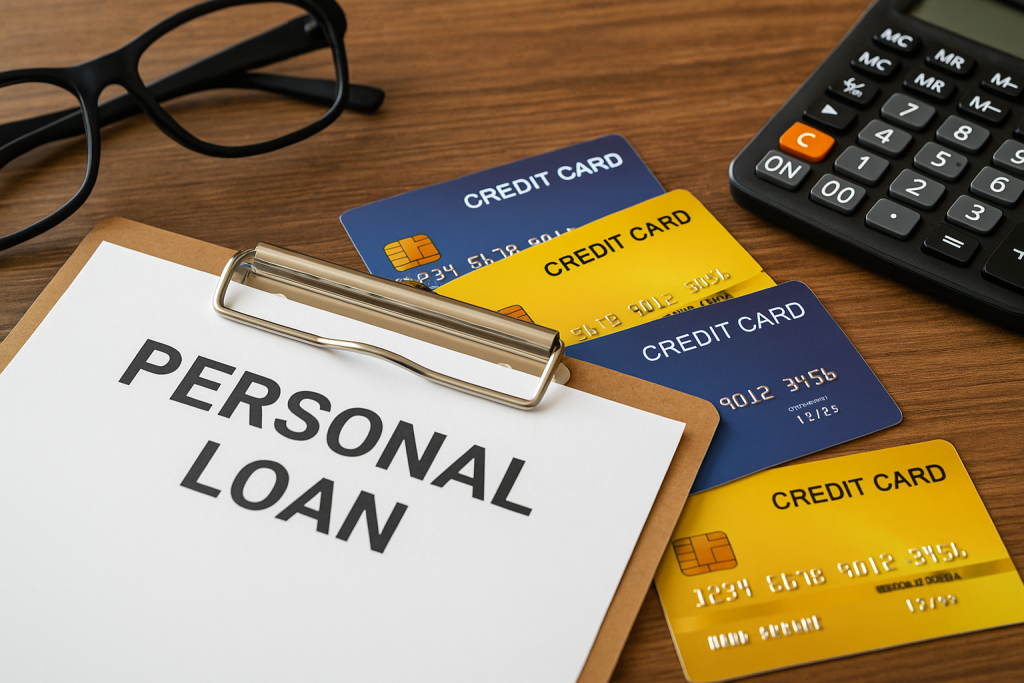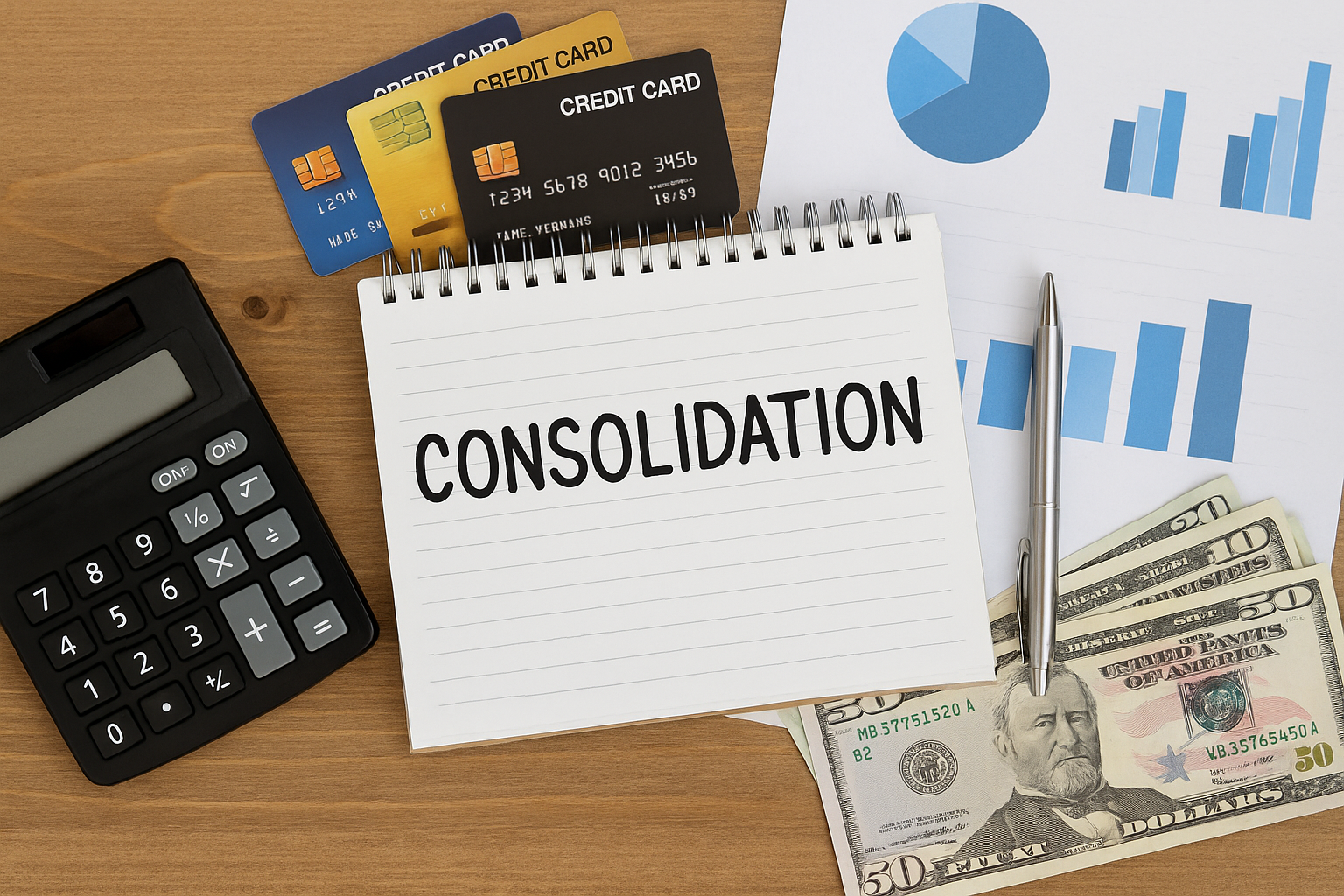Credit card debt consolidation can be a strategic move to regain financial control. For many, it represents a viable solution to manage overwhelming debt from multiple credit cards by combining them into a single payment. By streamlining payments, consolidation can potentially lower interest rates and reduce monthly payments, leading to financial stability.
In this guide, we aim to explore when consolidating credit card debt might be worth it. We will touch upon important factors to assess before deciding, potential benefits, and when this strategy might not be suitable. Read on to understand the dynamics of credit card debt consolidation and steps you might take to implement this financial option judiciously.
What is credit card debt consolidation?

Credit card debt consolidation entails merging multiple credit card balances into one, ideally with a lower interest rate. This can be achieved through various methods such as balance transfer credit cards, personal loans, or home equity loans. The goal is to simplify debt repayment, minimize interest, and, ideally, pay off the debt faster.
This method can significantly impact your financial health but requires discipline. Keep in mind, consolidating doesn’t eliminate the debt but transfers it. It could provide a structured way to pay down your debts with a single monthly payment, often at a lower interest rate.
Opting for credit card debt consolidation can involve fees, so calculating potential savings versus costs is crucial. Sometimes, the consolidation process might include upfront costs or balance transfer fees, which should be assessed before proceeding.
Benefits of credit card debt consolidation
The primary advantage of credit card debt consolidation is the potential for lowered interest rates. When successfully obtaining a lower rate, more of your payment goes toward the principal balance, accelerating debt payoff. Additionally, managing a single payment simplifies budgeting and reduces the stress of tracking multiple due dates.
Beyond financial savings, consolidation can have psychological benefits. Simplifying debt management can alleviate stress, often contributing to improved mental wellbeing. Feeling more in control of your finances can provide the peace of mind needed to tackle other financial challenges.
When might credit card debt consolidation not be worth it?
Though appealing, credit card debt consolidation may not be suitable for everyone. If you struggle with overspending, consolidating debts without addressing spending habits can lead to further financial trouble. Before consolidation, evaluate if you’re ready to commit to a structured repayment plan and spending discipline.
Additionally, if the new interest rate isn’t significantly lower than your current rates, consolidation might not save you money. In such cases, paying down higher interest cards individually could be more effective. Each financial situation is unique, and careful evaluation is necessary to avoid costly mistakes.
How to consolidate credit card debt?
Consolidating credit card debt begins with understanding available methods. Balance transfer credit cards, for instance, offer low or 0% APR for an initial period, which can be beneficial if you plan to pay off the debt within that timeframe. Consider the balance transfer fee and ensure your credit score qualifies for favorable terms.
Alternatively, personal loans might be an option, offering fixed interest rates and set repayment terms. Personal loans could also impact your credit score positively by varying your credit types. However, they require creditworthy approval and, compared to balance transfers, may offer less flexibility.
Factors to consider before consolidating
Before proceeding with credit card debt consolidation, review your financial situation carefully. Examine your credit score to determine eligibility for low-interest options. Consider if the consolidated payment fits comfortably within your monthly budget, allowing for timely payments without financial strain.
Beyond numbers, emotional readiness plays a crucial role. Be honest about your spending habits and ability to stick to a repayment plan. Prepare to cut down on expenses and avoid accumulating new debt to maximize the benefits of consolidation.
Steps to successfully consolidate credit card debt
To successfully consolidate your credit card debt, start by listing all your debts and their respective interest rates. Research and compare consolidation options, considering terms, interest rates, and additional fees. Once you’ve decided on a consolidation method, apply and ensure funds cover all existing card balances.
Post-consolidation, commit to your repayment plan. Avoid accruing new debt and monitor your spending closely. Consider automating payments to prevent missed deadlines, reinforcing the need to adhere to your financial goals and, ultimately, achieving financial relief through consolidation.

